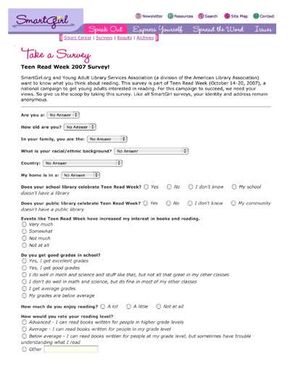In the business world, an untested idea is a bad idea. Before spending millions of dollars designing, manufacturing and marketing a product, companies first have to figure out whether anyone even wants to buy it. That process is called market research.
Market research is big business. American companies spend billions of dollars each year on focus groups, product testing, interviews and surveys -- all in an effort to determine which logo is the catchiest, which flavor of potato chip is the most addictive and which pop song will be the next big hit [source: The Huffington Post].
Advertisement
To save time and money, many companies are turning to online market research. Surveys, in particular, can easily be conducted online or over e-mail. The cost of a 200-person, e-mail survey is $2,500 to $5,000. To get the same number of responses from a snail mail survey would cost between $5,000 and $7,000, and phone surveys can run as high as $15,000 [source; Yahoo! Small Business].
As an incentive for consumers to fill out online surveys, companies offer them rewards. At Web sites like e-Rewards and MySurvey, consumers either earn money or points for each survey they fill out and submit. Those points can be redeemed for rewards such as discounts on products, free airline miles or gasoline gift cards.
Online surveys with rewards are a potential win-win situation for companies and consumers. The company gets valuable market research from a targeted survey audience, and the consumer is paid for his time through discounts and freebies on products he likes.
The only problem with rewarding consumers for taking online surveys is that it gives them the incentive to cheat. The more surveys you fill out, the more points you get. So people get creative: They randomly answer survey questions as quickly as possible, establish multiple e-mail addresses to answer the same survey five or six times, or lie about their demographic (a white male says he's a black female, for example) to participate in surveys for which they otherwise wouldn't qualify [source: Frost & Sullivan].
In this HowStuffWorks article, we'll explore the ins and outs of online surveys: how they fit into overall market research plans, how reward Web sites work, and what can be done to make online survey results more reliable.
Let's start with a crash course in market research 101.







